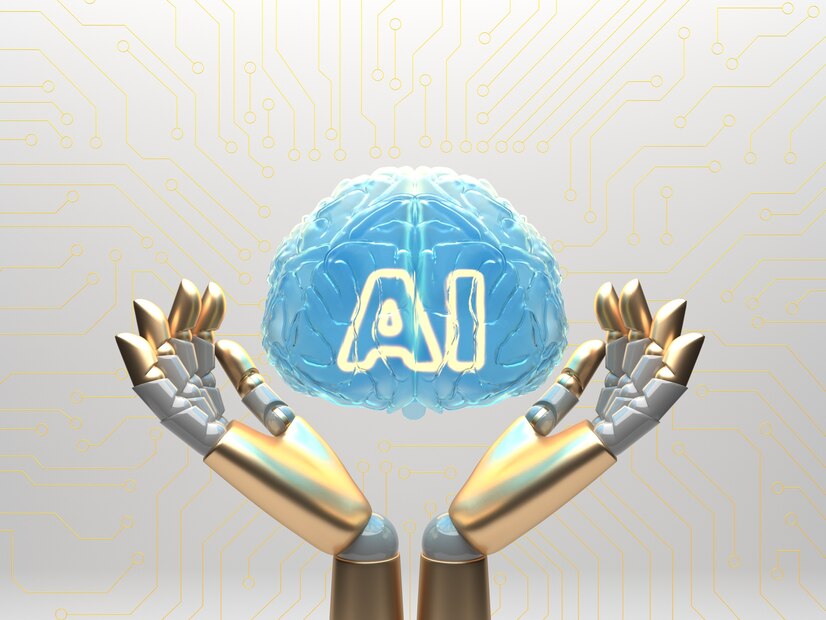HEALTH
AI and Ethics: Navigating the Moral Maze of Tomorrow’s Technology

The Ethical Labyrinth of AI: Navigating Tomorrow’s Technological Morality Maze
As artificial intelligence (AI) advances rapidly, its integration into various aspects of society brings both incredible opportunities and profound ethical dilemmas. From healthcare to law enforcement, AI’s potential to reshape industries and influence daily life is immense. However, this progress is accompanied by significant ethical concerns that require careful consideration and proactive management. This blog delves deeply into the ethical challenges posed by AI, supported by studies, statistics, and real-world examples, and explores how we can navigate this complex moral landscape.
1. The Ethical Dimensions of AI
AI technology encompasses a broad range of applications, each presenting unique ethical issues. Understanding these dimensions is crucial for addressing the potential risks and ensuring responsible development.
Bias and Discrimination
AI systems are often trained on large datasets, which can reflect historical biases. When AI algorithms learn from biased data, they may perpetuate or even exacerbate existing inequalities. For example:
- Hiring Practices: A 2018 study by MIT and Stanford researchers found that AI algorithms used in recruitment could disproportionately disadvantage women and minority candidates. The study highlighted how algorithms trained on historical hiring data often replicated biases present in the original datasets.
- Criminal Justice: In the U.S., AI tools used for predicting recidivism in criminal justice systems have been criticized for racial bias. The ProPublica investigation revealed that the COMPAS algorithm, used in parole decisions, was more likely to falsely label Black defendants as high-risk compared to white defendants.
Privacy and Surveillance
AI’s capacity for data analysis raises significant privacy concerns. The extent of data collection and its potential misuse pose risks:
- Data Breaches: In 2021, the Identity Theft Resource Center reported a 17% increase in data breaches from the previous year, highlighting the vulnerability of personal information in the digital age.
- Surveillance: The use of facial recognition technology has raised alarms about mass surveillance. A 2020 study by the American Civil Liberties Union (ACLU) found that several major tech companies’ facial recognition systems exhibited racial and gender biases, raising concerns about privacy and civil liberties.
Autonomous Systems and Accountability
AI systems capable of making autonomous decisions, such as self-driving cars and autonomous drones, introduce complex ethical questions:
- Autonomous Vehicles: The development of self-driving cars necessitates ethical decisions about how the vehicle should act in emergency situations. The “trolley problem” dilemma, which involves choosing who to harm in unavoidable accidents, illustrates the moral complexity of programming autonomous vehicles.
- Autonomous Weapons: The potential use of AI in military applications, including autonomous drones and weapons, raises concerns about the accountability and ethical implications of lethal decision-making.
2. Case Studies and Real-World Examples
Examining real-world applications of AI helps illustrate the ethical challenges and potential solutions.
Facial Recognition Technology
Facial recognition technology has made significant strides but also faced substantial backlash:
- China’s Surveillance State: China has implemented a nationwide facial recognition system used for various purposes, including monitoring public spaces. A 2021 report by the Chinese government claimed that the technology significantly improved public safety, but human rights organizations have criticized it for enabling pervasive surveillance and civil rights abuses.
- UK’s Use of Facial Recognition: In the UK, the use of facial recognition technology by police has been contentious. The Independent Office for Police Conduct (IOPC) reported that the technology had been used in a manner that could potentially infringe on privacy rights, leading to calls for more stringent regulations and oversight.
AI in Healthcare
AI’s impact on healthcare highlights both its transformative potential and ethical challenges:
- Predictive Analytics: AI systems used for predictive analytics can identify at-risk patients and suggest preventive measures. For instance, Google’s DeepMind developed an AI that predicts the onset of diabetic retinopathy with over 90% accuracy. However, ensuring the ethical use of patient data and addressing concerns about data privacy and consent remain crucial.
- Algorithmic Bias in Health Data: A 2019 study published in Science found that certain AI algorithms used in healthcare were less accurate for minority populations. This study underscores the importance of addressing bias in health data to ensure equitable healthcare delivery.
3. Navigating the Ethical Maze: Strategies and Solutions
Addressing the ethical concerns associated with AI requires a multifaceted approach:
1. Ensuring Transparency and Accountability
- Algorithmic Transparency: AI systems should be designed with transparency to allow users and stakeholders to understand how decisions are made. The European Union’s General Data Protection Regulation (GDPR) includes provisions for algorithmic transparency, requiring companies to provide explanations for automated decisions.
- Accountability Mechanisms: Establishing clear accountability mechanisms for AI systems is essential. This includes defining who is responsible for the decisions made by AI and ensuring that there are processes for addressing grievances and rectifying issues.
2. Mitigating Bias and Promoting Fairness
- Diverse Data Sets: To reduce bias, AI developers should use diverse and representative datasets. The use of inclusive data can help mitigate biases and improve the fairness of AI systems.
- Bias Audits: Regular audits of AI systems can identify and address biases. For example, IBM’s AI Fairness 360 toolkit provides tools for auditing and mitigating bias in machine learning models.
3. Protecting Privacy
- Data Protection Regulations: Implementing robust data protection regulations, such as GDPR and the California Consumer Privacy Act (CCPA), can safeguard personal information and ensure that AI systems comply with privacy standards.
- Privacy-Enhancing Technologies: Techniques such as data anonymization and encryption can protect individuals’ privacy while still enabling valuable AI applications.
4. Establishing Ethical Frameworks and Guidelines
- Industry Standards: Developing and adhering to industry-specific ethical guidelines can help guide responsible AI development. For instance, the IEEE Global Initiative on Ethics of Autonomous and Intelligent Systems provides guidelines for ethical AI practices.
- Global Cooperation: International collaboration is essential for addressing the global nature of AI ethics. Organizations like the Partnership on AI bring together stakeholders from various sectors to develop and promote best practices for ethical AI.
4. The Path Forward: Building an Ethical AI Future
Building an ethical AI future requires a concerted effort from all stakeholders:
- Ethical Education and Training: Incorporating ethics into AI education and training programs can prepare future technologists to navigate moral dilemmas and make responsible decisions.
- Continuous Evaluation: AI systems should undergo continuous evaluation to assess their ethical impact and make necessary updates to address emerging concerns and risks.
- Public Engagement: Engaging the public in discussions about AI ethics helps create inclusive and informed policies. Public input ensures that ethical guidelines reflect societal values and concerns.
Conclusion
As AI technology continues to evolve, navigating the moral maze of tomorrow’s technology requires vigilance, transparency, and collaboration. By addressing ethical challenges and implementing responsible practices, we can harness the transformative potential of AI while mitigating its risks. The journey toward an ethical AI future involves continuous learning, open dialogue, and a commitment to upholding values that serve the greater good.
Feel free to share your thoughts or questions about AI ethics in the comments below. How do you think we can best address the ethical challenges of AI? Let’s continue the conversation and work towards a responsible AI future.
-

 Food and Recipes10 months ago
Food and Recipes10 months ago“2024’s Top 15 Must-Try Meals: A Delicious Culinary Journey Through This Year’s Hottest Dishes”
-

 SCIENCE AND TECHNOLOGY10 months ago
SCIENCE AND TECHNOLOGY10 months ago“11 Game-Changing AI Technologies: Discover the Latest Trends Shaping the Future”
-

 ENTERTAINMENT10 months ago
ENTERTAINMENT10 months agoTop 35 Must-Play Games of 2024: The Best Picks So Far
-

 FASHION AND MAKEUP10 months ago
FASHION AND MAKEUP10 months agoUnlock the Power of Aloe Vera: 15 Incredible Uses You Need to Try Today
